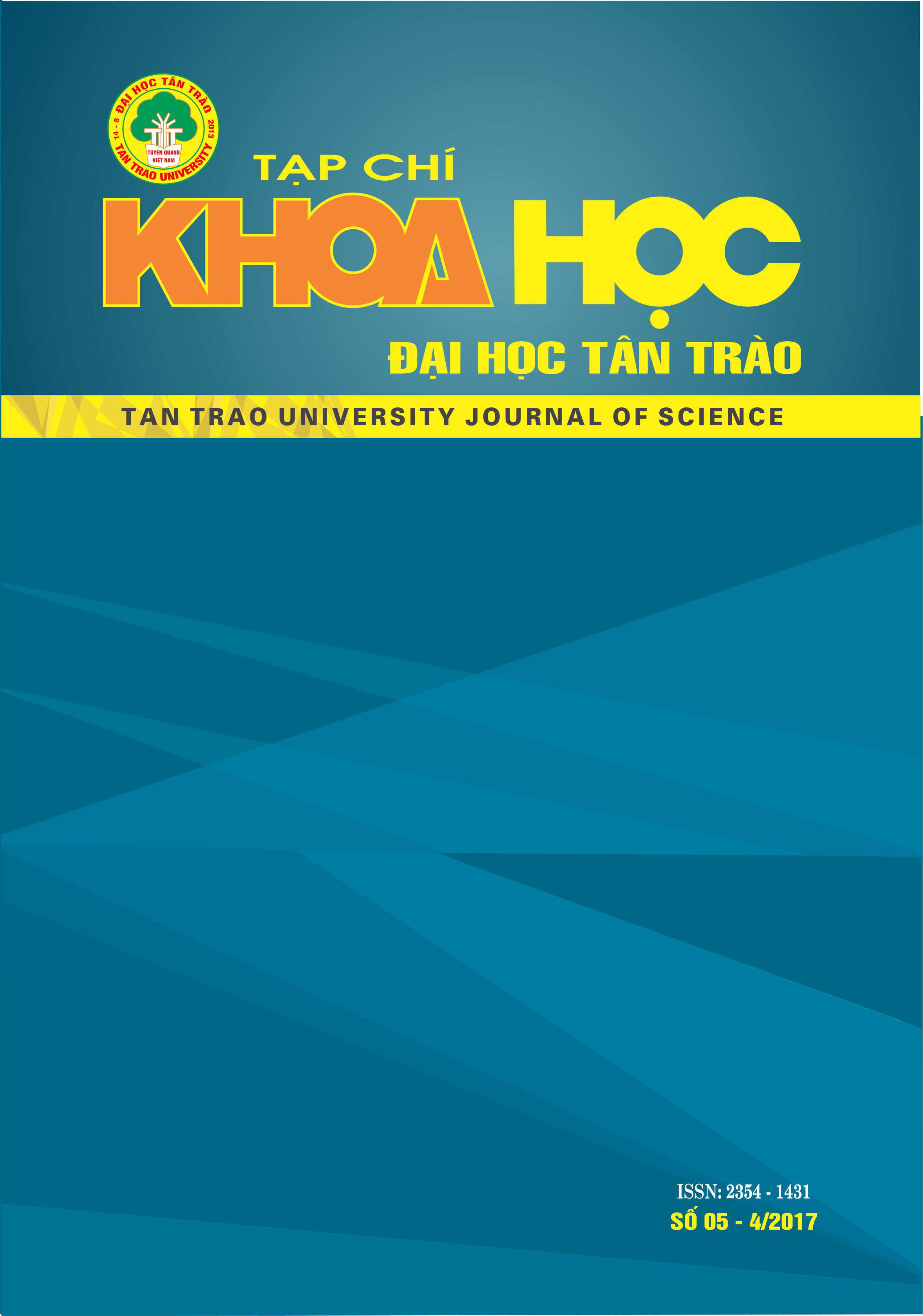Bodiness is in the short story Tre Rung of Lynh Bacardi
DOI:
https://doi.org/10.51453/2354-1431/2017/133Keywords:
Postmodernism; corporality; Lynh Bacardi; the short story Tre rungAbstract
The proverment of technical and scientific, popular of computer, network revolution, social net, telecom revolution and the big social events: to demolish the Berlin wall, to assassinate F.Kennedy America president, to kill absent Salman Rushdie for Ayatollah Khomeini, the breakdown Holocaust All to make chaos and lose failth in the big narrative gener in post moderne person. In that society appear human “indifferent with all things be taking place about them”, lonely, to be like a fish out of water. But in the very deep they still thirst for loved, respected, equaled (special to be women). And there, the setiment of human is existing
Downloads
References
1. Đào Tuấn Ảnh, Lại Nguyên Ân, Nguyễn Thị Hoài Thanh (2003), Văn học hậu hiện đại thế giới –Những vấn dề lý thuyết, Nxb Hội nhà văn, Trung tâm Văn hoá Ngôn ngữ Đông Tây;
2. Phan Tuấn Anh (2009), Tiếp nhận lý thuyết văn học hậu hiện đại Việt Nam, Luận văn thặc sĩ lý luận văn học,Trường Đại học Khoa học Huế, Huế;
3. Lê Huy Bắc (chủ biên) (2013), Phê bình văn học hậu hiện đại Việt Nam, Nxb Tri thức, Hà Nội;
4. Phan Tuấn Anh, Nguyễn Hồng Dũng (2011), Quan niệm về chủ nghĩa hậu hiện đại trong nghiên cứu văn học ở Việt Nam, Tạp chí Khoa học, Đại học Huế: Chuyên san Khoa học Xã hội và nhân văn. Số 3, tập 66, tháng 7;
5. Phan Tuấn Anh (2011), Qúa trình giải phóng thiên tính nữ trong văn học nghệ thuật từ góc nhìn mỹ học tính dục, Đề tài nghiên cứu khoa học cáp trường, Trường Đại học Khoa học Huế, Huế;
6. Lê Huy Bắc (2012), Văn học hậu hiện đại – lý thuyết và tiếp nhận, Nxb Đại học sư phạm, Hà Nội;
7. Phan Tuấn Anh và cộng sự (2013), Văn học hậu hiện đại – Lý thuyết và thực tiễn, Nxb Đại học sư phạm, Hà Nội.
Downloads
Published
How to Cite
Issue
Section
License

This work is licensed under a Creative Commons Attribution-ShareAlike 4.0 International License.
All articles published in SJTTU are licensed under a Creative Commons Attribution-ShareAlike 4.0 International (CC BY-SA) license. This means anyone is free to copy, transform, or redistribute articles for any lawful purpose in any medium, provided they give appropriate attribution to the original author(s) and SJTTU, link to the license, indicate if changes were made, and redistribute any derivative work under the same license.
Copyright on articles is retained by the respective author(s), without restrictions. A non-exclusive license is granted to SJTTU to publish the article and identify itself as its original publisher, along with the commercial right to include the article in a hardcopy issue for sale to libraries and individuals.
Although the conditions of the CC BY-SA license don't apply to authors (as the copyright holder of your article, you have no restrictions on your rights), by submitting to SJTTU, authors recognize the rights of readers, and must grant any third party the right to use their article to the extent provided by the license.


